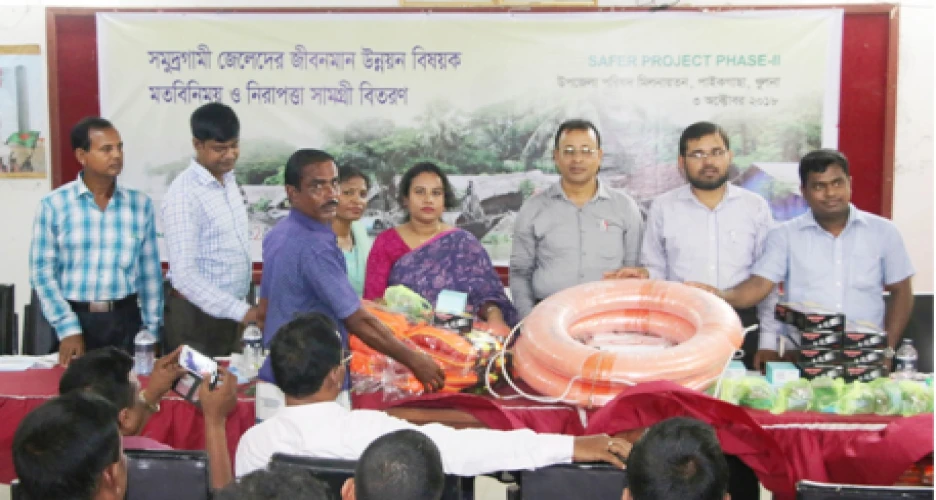Sundarbans Adjacent Fishers Enabling to Resilience Building (SAFER) Project
The SAFER Project was initiated in response to the pressing challenges faced by fisher communities in the southwest coastal region of Bangladesh, particularly in the Paikgachha Upazila of Khulna District. With the escalation of cyclones and sea depressions in the Bay of Bengal, traditional fishers were increasingly exposed to life-threatening risks during their fishing expeditions. The cyclical dilemma they faced—returning empty-handed or risking their lives at sea—often resulted in dire consequences, including asset loss, involuntary migration, and even imprisonment as illegal intruders in neighboring territories. Recognizing the critical need to enhance the resilience and safety of these communities, the SAFER Project aimed to establish a climate-resilient fisher community, thereby safeguarding their long-term livelihoods and well-being.
To address these challenges, the SAFER Project implemented various key activities focused on enhancing the capacity and safety measures of fisher communities. One notable initiative was the development and installation of a Vessel Tracking System (VTS) in traditional seagoing fishing boats. This system enabled real-time communication between fishers and a central monitoring hub, facilitating the exchange of vital information such as weather forecasts and disaster preparedness instructions. Additionally, the project prioritized knowledge dissemination and capacity building among fisher groups, fostering stronger linkages with relevant institutions for continued support and assistance.
As a result of the intervention, significant achievements were observed within the fisher communities. The successful implementation of the Vessel Tracking System led to improved safety practices and enhanced responsiveness to weather-related risks among fisher groups. With access to advanced weather information and disaster preparedness guidelines, fishers were better equipped to navigate the challenges posed by cyclones and sea depressions. Notably, during the project period, fisher groups were able to return safely to shelter on three occasions, mitigating potential life-threatening situations at sea. Overall, the SAFER Project succeeded in establishing a more resilient and empowered fisher community, thereby ensuring their sustainable livelihoods and safety in the face of climate-related hazards





